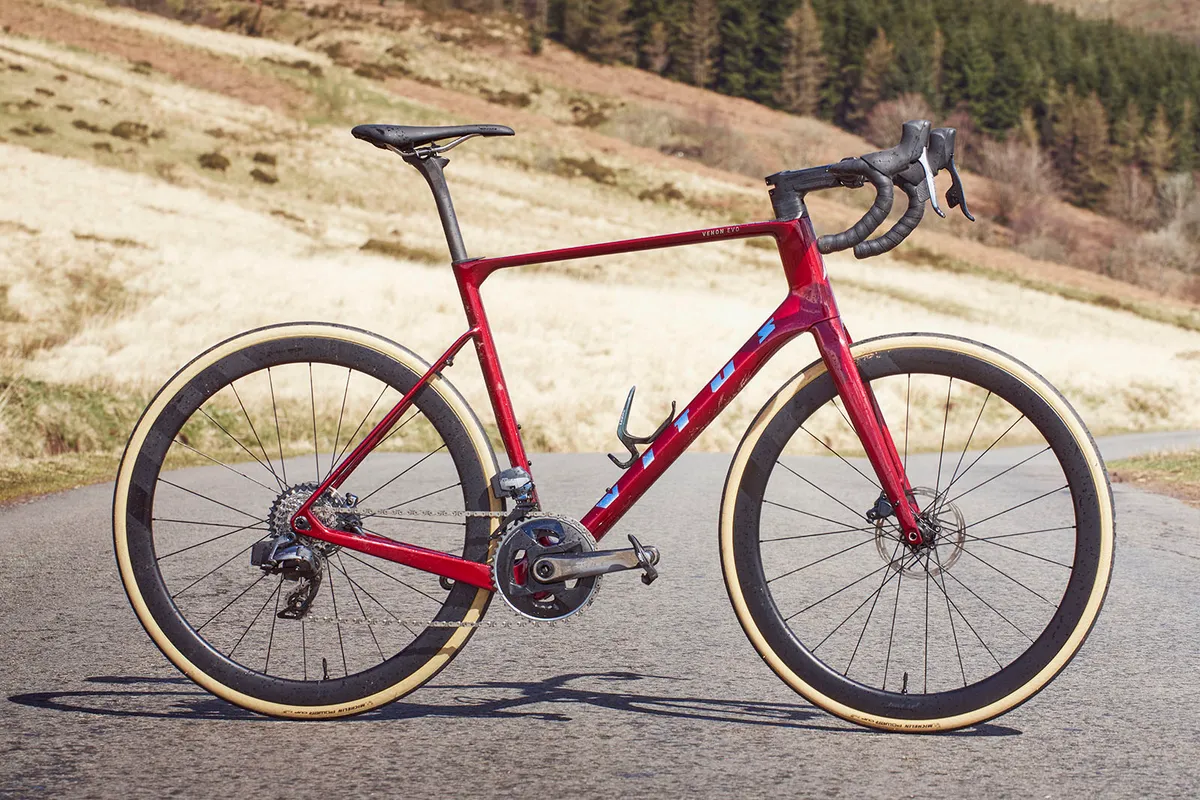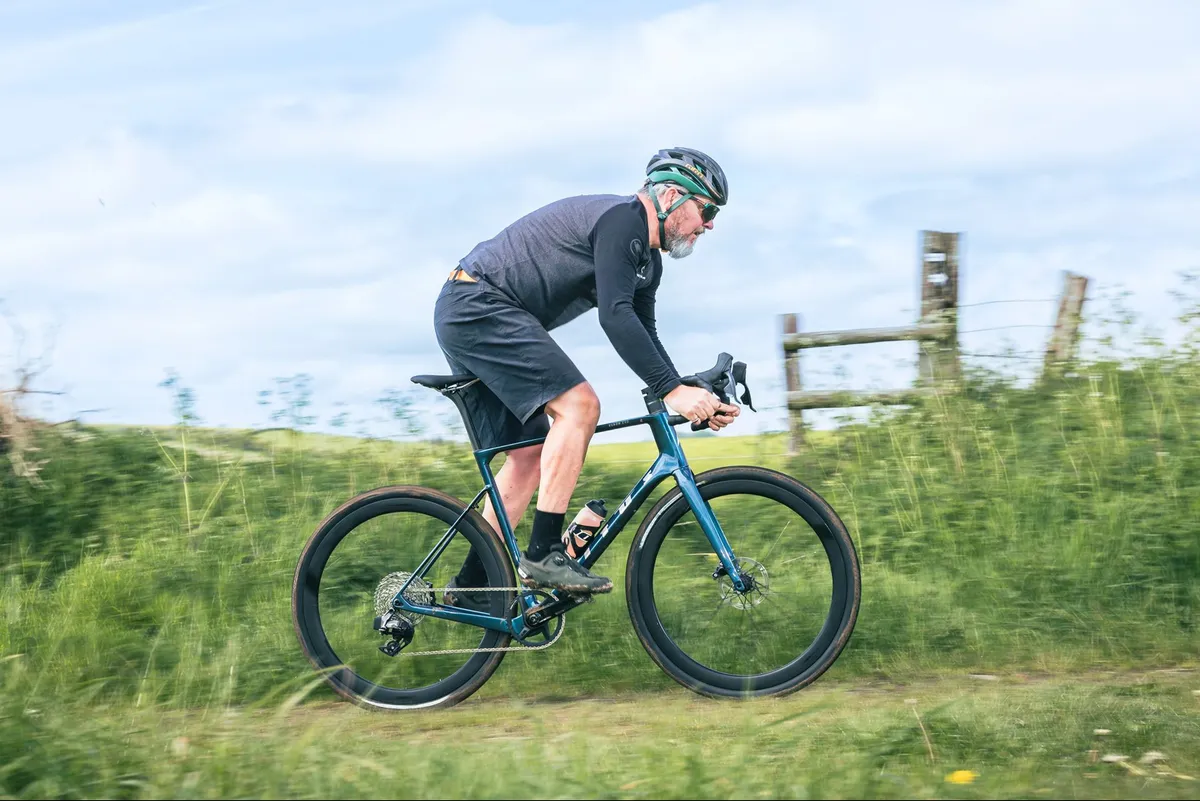Early in 2024, the sad news broke that online giant Wiggle/CRC had closed its doors.
Many assumed it would spell the end for popular and respected brands such as dhb and Prime, along with award-winning bike manufacturers Vitus and Nukeproof.
Since then, Wiggle has been acquired by the Frasers Group (owners of UK bike shop network Evans Cycles), and we've seen a lot of discounting of the Wiggle in-house inventory.
Now we’ve started to see sparks of life from that quartet of brands, first with the news that Nukeproof had been sold to Belgian Cycling Factory, the parent company of Ridley.
dhb has started selling again, and more recently, Vitus introduced new Nucleus and Sentier hardtail MTBs.
I caught up with John Williams, senior commercial manager for cycling at Frasers Group, to get the lowdown on the plans for these revived brands.
Vitus, Prime, dhb – where are they now?

With the most promising signs of life coming from Vitus, is the brand back from the dead?
"We see Vitus as a key brand, for Evans in particular," says Williams. "Vitus’ reputation and bike line-up has plenty of bikes that absolutely hit core ideals of ‘affordable performance’, and we’re excited to be continuing the legacy Vitus had built with great bikes across road, gravel, and mountain."
The challenge the new owners face, much like the rest of the cycling industry in 2025, is oversupply. Once Williams and his team investigated the state of play with the brands, they found a lot of stock at their manufacturing partners – both bikes and components.
The decision was made to buy up all the existing unpaid-for stock and get it into the supply chain. This meant Frasers Group could continue with the brands, to a certain degree, where they left off.
Williams explains: "That [buying up the existing inventory] allowed us to discount the bikes heavily, even though they are completely new bikes. Some are even unreleased."
Next stages

Williams says it's still early days for brands taken on by Frasers.
First on the agenda is finishing the existing products, with some spec changes from the initial propositions. "[These aren’t] cost-cutting exercises," Williams says, "but because the bike industry moves quickly and some of those original specification choices have been superseded, and tastes have changed – like tyre sizes and bar widths on road and gravel – we need Vitus to reflect that.
"We see Vitus as our key in-store brand for Evans, and it is now in 60+ Evans stores across the UK."

As for the current range, carbon road, gravel, and full-suspension frames remain popular and will continue.
That said, some of the products have been retired – “hardtails, urban bikes and a few others,” Williams says. "[But] that’s why there are new hardtails available now, all designed anew with a new team behind them."
The new design team is looking across the range, and Williams says we’ll see a raft of updates to existing models alongside all-new options.
Some bikes won’t need updating so soon, such as the 2023 Bike of the Year-winning Vitus Venon Evo. This already has near-class-leading tyre clearances of 45mm (for an endurance bike), the frameset is still impressively lightweight, and the geometry is spot-on for its purpose.
That said, I’d make an educated guess that we’ll see an updated Venon Evo with subtle changes such as a Universal Derailleur Hanger rear dropout and perhaps down-tube storage – but that’s it.
State of play

With Evans becoming the key retail outlet for Vitus, it now sits within a new mix of brands. Pinnacle, for example, continues as the Fraser Group's entry-level to mid-range brand.
Vitus is pitched mid-to-premium, so it should sit perfectly within Evans stores. According to Williams, Frasers is fully committed to Vitus being the star brand for Evans.

How about dhb?
The story from dhb, according to Williams, is much simpler: "Sourcing, design, quality, all remain unchanged, [with the] same suppliers/manufacturers in Italy.
"Existing stock was acquired from the suppliers, which enabled us to continue supply whilst new products were being finalised."
At dhb, as with most clothing brands, the technical elements and fabrics of garments are heavily led and influenced by manufacturing partners.
That’s continuing with new designs for the coming seasons/years in development. Williams states: "dhb’s road and gravel-oriented performance clothing is a big part of the Frasers Group's ongoing plans."
However, it seems dhb's triathlon and swimming products are not part of that focus, at least for now, according to Williams.
Prime components steadying the ship

Frasers Group has also acquired all the outstanding components stock from suppliers, including in-house brand Prime. Williams admits to being surprised by the sell-through on that stock.
Even so, we’ll probably see much scaling back on aftermarket Prime components. Williams says: "Prime will continue being used for OE (original equipment) for new Vitus bikes, and products are being restocked."
But he claims they are looking at the whole Prime range to see what’s working and what isn’t – handlebars and saddles have sold well under the Frasers Group's ownership, he says.
Wheelsets have been a tougher sell, though, with Williams citing much more competition, especially at the affordable end of the carbon wheels market, where Prime operates.
With this in mind, I’d expect to only see Prime’s wheelsets appear as original equipment specs, going forward.
A new dawn for Nukeproof

Things look different for Nukeproof, the mountain bike brand that, like Vitus, blended performance with value.
Nukeproof saw plenty of success in racing, with Sam Hill winning multiple Enduro World Series (EWS) titles aboard Nukeproof bikes and the Continental Nukeproof Factory Racing team taking multiple podiums and a smattering of National titles for its riders.
Nukeproof closed along with CRC and became part of the Frasers Group buy-out of the Wiggle/CRC assets. Frasers then sold the catalogue, existing stock and intellectual property of Nukeproof to Belgian Cycling Factory, home of Ridley Bikes.

CEO of the Belgian Cycling Factory, Jochim Aerts' statement on the acquisition appeared to show plenty of intent for Nukeproof: "From the moment we acquired Nukeproof, my biggest question was: 'how do we ensure the brand keeps its soul while growing its global presence?’."
Aerts wanted to keep Nukeproof UK-based, and retain the thinking behind the brand and design with the same focus. It now has the backing and production abilities of Belgian Cycling Factory.
Early signs are strong, and Nukeproof’s impressive mountain bike line-up looks set to continue with the announcement that senior product manager Steve Jamison and lead engineer Dale McMullan, both former Nukeproof team members, have returned to drive product innovation and development.
I caught up with recently installed global brand director Clive Gosling to find out the plans for the revived brand.

"I started with Nukeproof on 18 August. When I looked at the plan for the brand that day, Jochim had a clear goal to get back racing in 2027 as BCF’s DNA is competition and speed over the last 30 years," he says.
"The following weekend was the UCI World Cup in Les Gets, so I headed down there and spoke to several teams with a goal of going racing in 2026.
"World Cup downhill racing is a real testament to a brand and gives you a wide spectrum of coverage, which benefits legitimacy as a mountain bike brand across all categories."
Fittingly, then, Gosling tells me the brand is in talks with teams and sponsors to be on the World Cup start lines a year ahead of the original schedule.
Meanwhile, Nukeproof is also looking to broaden its appeal in the MTB space. "I also thought the XC racing in Les Gets was super cool and, as we broaden the Nukeproof proposition, I think we could be racing in Lycra at some point too…"
It’s not all ‘wins’ though. Fans of the radical Nukeproof Digger RS gravel bike will be disappointed, with Gosling confirming Nukeproof's focus will be purely on mountain biking.
That comes as little surprise, though, because Ridley has six gravel models, covering everything from elite racing to adventure riding and long-distance bikepacking, already in its arsenal.
The initial aim for Nukeproof is a new series of bikes in 2026. Gosling says: "The 2026 range is basically the previous brand's ‘greatest hits’ plus a new hit single, though seen at a new, lower price than ever before.
"Then, as we get into next summer, we’ll have these new opening-price bikes and some all-new bikes that we’re bringing as quickly as possible, including exciting new ebikes."

BCF has just finished its dealer presentations, where bike shops around the world have seen previews of next year’s roll call for Nukeproof. Gosling tells me he was surprised by the level of interest shown in the brand's return.
He claims Nukeproof's strength is that the business model involves selling only through bike shops (as across all BCF brands). This comes with the bonus of a new online custom configurator, where you can select both spec and custom paint, yet still order through your local store.
Gosling is an industry veteran of some of the biggest organisations around and has a fresh take on Nukeproof's new stewardship. He says: "because BCF is a privately owned family business, the speed of decision making and enthusiasm, adaptability, and agility are so refreshing.
"One industry friend recently said we were a speed boat in comparison to many competitors who are cruise liners. I would say that Nukeproof is the wakeboard off the back of the BCF speedboat!"
What happens now?

How things pan out for Vitus, dhb, Prime and Nukeproof remains to be seen. However, after a tough few years for the bike industry, I’m optimistic.
Nukeproof was a great British success story, a small upstart brand based in Northern Ireland that released some great bikes, and competed with and beat some of the biggest names in cycling with vastly bigger budgets.
It's good to see the brand back and being run from the UK again, having retained some of its talent.
BCF was forged in racing and Ridley has, since its inception three decades ago, always been a racing brand. Hopefully, we'll see a similar future for Nukeproof.
Vitus, meanwhile, is a brand I’ve got a lot of respect for. The key bikes in the range before the Wiggle collapse, such as the brilliantly versatile Venon Evo and the race-proven aero ZX-1, evidenced a brand full of confidence, building some excellent bikes.
Being a premium brand owner rather than solely a retailer is new territory for the Frasers Group. I hope it builds on Vitus' legacy, and keeps dhb and Prime moving in the right direction.




